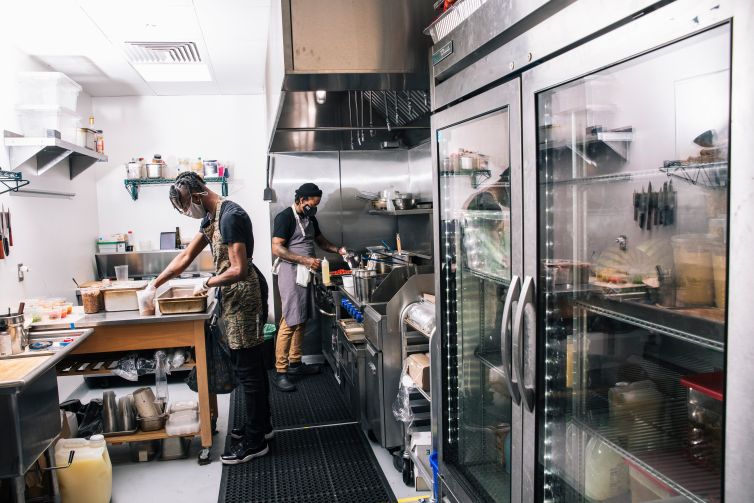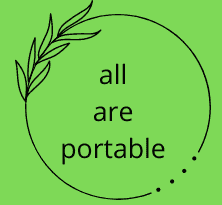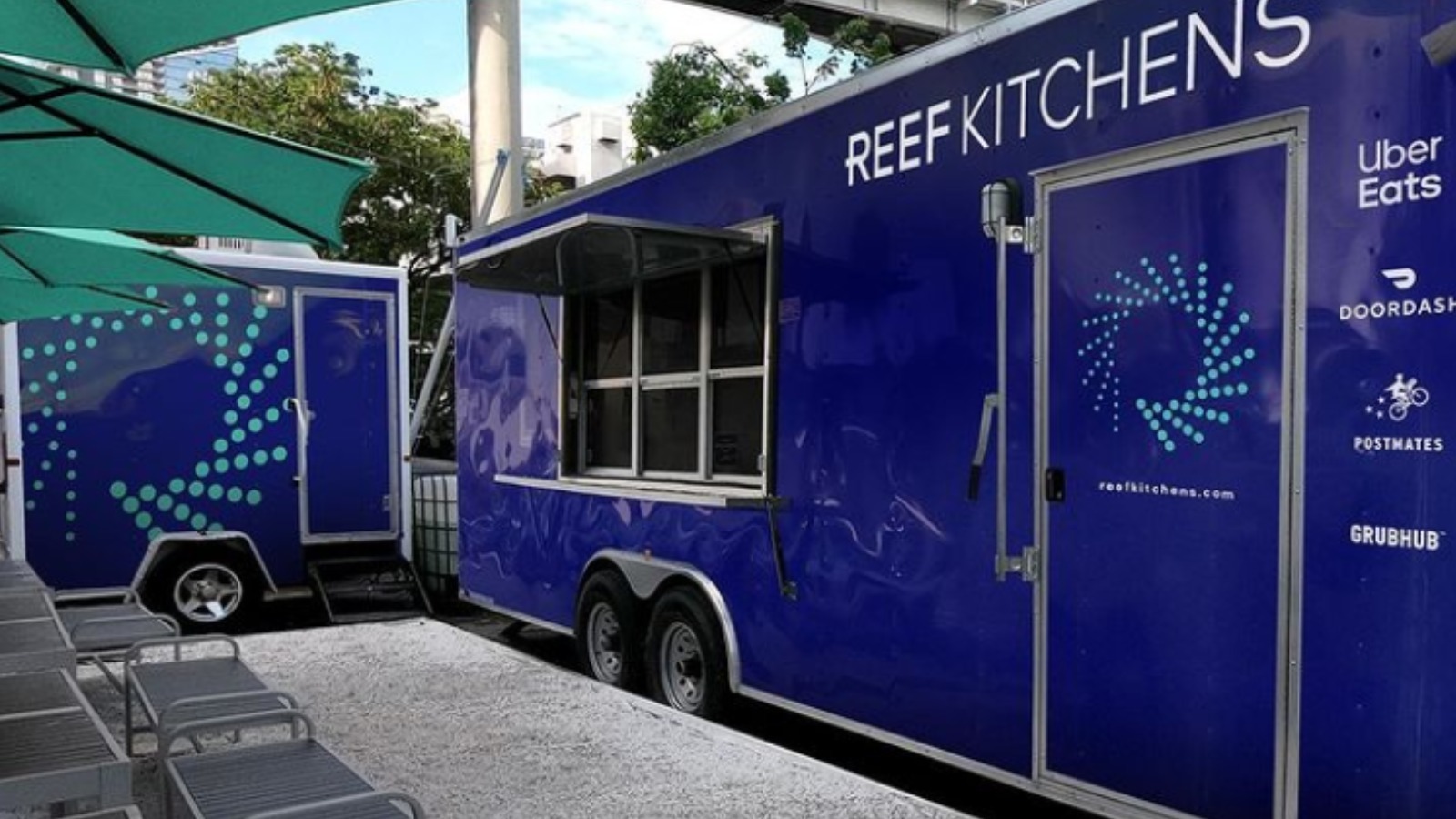Melvin is an expert for portable products.The site is for sharing everything about portable products for online buyers.
Yes, ghost kitchens are legal and operate within the boundaries of the law. Ghost kitchens, also known as virtual kitchens or cloud kitchens, have emerged as a popular concept in the food industry.
These establishments are essentially commercial facilities that are solely dedicated to food production for delivery, without any dine-in options or public-facing storefronts.
With the rise of online food delivery platforms, ghost kitchens offer a cost-effective solution for restaurants and food entrepreneurs to expand their reach and increase delivery capabilities.
However, some may question the legality of these operations. Rest assured, ghost kitchens are a legal business model, as long as they comply with relevant health and safety regulations, permits, and licenses.
We will explore the legal aspects of ghost kitchens in more detail, addressing any concerns that may arise about their operation.
Understanding Ghost Kitchens
Understanding Ghost Kitchens: Ghost kitchens, also known as virtual restaurants or delivery-only concepts, have become a game-changer in the food delivery industry.
These establishments are fully equipped professional kitchens that focus solely on preparing food for delivery or takeout orders. They do not have a physical dining space for customers to sit and eat. By eliminating front-of-house expenses, ghost kitchens can provide affordable and convenient options for customers.
Exploring the concept of ghost kitchens: The rise of ghost kitchens has revolutionized the way food delivery operates. Unlike traditional brick-and-mortar restaurants, ghost kitchens operate solely in the online realm.
These kitchens are often set up in centralized locations, strategically positioned to cater to a wide area. This allows them to efficiently serve customers, reducing delivery times and increasing customer satisfaction.
How ghost kitchens have redefined the food delivery industry: Ghost kitchens have transformed the food delivery landscape by offering a cost-effective solution for aspiring restaurateurs.
They provide entrepreneurs with an opportunity to launch their food brands without the hefty expenses associated with traditional restaurants. Additionally, ghost kitchens allow established restaurants to expand their reach and experiment with new concepts.
With the increasing demand for delivery services, ghost kitchens have emerged as a legal and innovative solution to meet consumer needs.
The rise of virtual restaurants and delivery-only concepts: Virtual restaurants, operating entirely through online platforms, have gained popularity alongside ghost kitchens. These establishments don’t have a physical presence and operate solely as virtual brands.
By leveraging existing kitchen spaces, virtual restaurants can offer a diverse range of cuisines and dishes to cater to specific consumer preferences. Delivery-only concepts emphasize convenience and efficiency, allowing customers to enjoy their favorite meals without leaving the comfort of their homes.
Legal Considerations For Ghost Kitchens
Ghost kitchens have become a popular trend in the food industry, but their legality can raise some concerns. When operating a ghost kitchen, it is important to consider the legal aspects involved. Local zoning regulations and permits are crucial as they determine whether a specific location is suitable for a ghost kitchen.
Compliance with health and safety regulations is paramount to ensure that the food prepared and delivered meets the required standards. Additionally, obtaining the necessary licenses for food preparation and delivery is essential to operate legally.
Understanding food service laws and regulations is vital to avoid any legal issues that may arise. By adhering to these legal considerations, ghost kitchen operators can ensure that their business operates smoothly and within the bounds of the law.
Evaluating The Legality Of Ghost Kitchens
The legality of operating a ghost kitchen varies across jurisdictions. In some cities, ghost kitchens have encountered legal challenges. For instance, in San Francisco, their operation was met with opposition due to zoning regulations and concerns about fair competition.
Similarly, in New York City, the delivery-only model faced scrutiny regarding compliance with health and safety regulations.
Several factors influence the legality of ghost kitchens. These include local zoning laws, licensing requirements, and adherence to food safety guidelines. Compliance with these regulations is crucial to avoid potential legal issues.
In recent times, pandemic-related restrictions have had a significant impact on ghost kitchen operations. Many jurisdictions have implemented temporary measures allowing restaurants to operate ghost kitchens to meet the increased demand for delivery and takeout services.
However, ghost kitchens need to remain updated on the evolving regulations to ensure their continued legality.
Legal Issues Surrounding Ghost Kitchen Brands
Ghost kitchens are a relatively new concept in the food industry, and as such, there are several legal issues surrounding their operation.
One important consideration is trademark protection for ghost kitchen brands. Since these virtual restaurants often rely on online platforms for orders and delivery, they must establish and protect their brand identity.
Intellectual property considerations also come into play for ghost kitchen brands. These virtual restaurant concepts may have unique recipes, branding elements, and operating processes that could be subject to copyright or patent protections.
Additionally, advertising and marketing restrictions and guidelines are important to be aware of. Ghost kitchens should ensure that their marketing campaigns are truthful and comply with relevant laws and regulations.
Understanding the legal landscape is essential for ghost kitchen operators to minimize risks and ensure compliance with the law.
Food Safety And Hygiene Regulations
A ghost kitchen is a type of food service operation that prepares meals for delivery or takeout only, without a physical dining area for customers. As these virtual kitchens continue to gain popularity, one important question that arises is whether they are legal and adhere to food safety and hygiene regulations.
Ensuring compliance with food safety standards is crucial for ghost kitchens. Health inspections and certifications play a vital role in maintaining safe food practices. These inspections evaluate the kitchen’s cleanliness, handling of ingredients, and overall operational hygiene.
Obtaining proper certifications is essential for ghost kitchen operators to demonstrate their commitment to food safety.
Quality control measures also need to be implemented in delivery-only models. This includes ensuring that food is prepared and stored at the right temperatures, following proper cooking techniques, and maintaining strict hygiene during food handling.
Regular training and monitoring of staff’s adherence to these practices are necessary to maintain the quality and safety of the food prepared in ghost kitchens.

Credit: commercialobserver.com
Liability And Insurance For Ghost Kitchens
Liability and insurance coverage are important aspects to consider for ghost kitchens. Ghost kitchens are legal entities, but they can still face liability issues in case of foodborne illnesses or injuries. Ghost kitchen operators must understand their potential liabilities and how to mitigate them.
One key consideration is insurance coverage. Ghost kitchen operators should ensure that they have appropriate insurance policies in place to protect themselves in case of any accidents or incidents. This may include general liability insurance, product liability insurance, and workers’ compensation insurance.
In addition to insurance, ghost kitchen operators should implement risk management strategies to minimize potential liabilities. This can include proper food safety protocols, rigorous quality control measures, and regular inspections. By implementing these strategies, ghost kitchen operators can demonstrate their commitment to providing safe and hygienic food to their customers.
Overall, liability and insurance for ghost kitchens are essential for protecting both the operators and the customers. By being proactive and diligent in addressing potential risks, ghost kitchen operators can create a safer environment for everyone involved.
Employment And Labor Laws
In the context of employment and labor laws, ghost kitchens must understand the legal aspects of hiring and managing staff. One key consideration is the formulation of employment contracts and proper worker classification.
Clear and comprehensive employment contracts help define the rights and responsibilities of both parties, while proper worker classification ensures compliance with labor regulations.
Ghost kitchens must also adhere to minimum wage requirements and ensure adequate labor protections for their employees. Compliance with minimum wage standards is essential to avoid legal repercussions and maintain a fair work environment. Furthermore, providing appropriate labor protections, such as safe working conditions and access to benefits, promotes employee well-being and reduces the risk of legal issues.
The Future Of Ghost Kitchen Regulations
The future of ghost kitchen regulations is an area of great interest and importance for the industry. Anticipated changes and developments in the regulatory landscape will have a significant impact on the operation and growth of ghost kitchens.
\As the industry continues to evolve, it faces both challenges and opportunities when it comes to compliance with food safety, health codes, and zoning regulations.
With the rise of ghost kitchens, there is a need for clear guidelines and oversight to ensure the safety and quality of the food being prepared and delivered to consumers.
Regulatory bodies are recognizing the need to adapt to this new business model and establish comprehensive and consistent regulations.
These anticipated changes in ghost kitchen regulations have the potential to shape the future of the food delivery landscape. They may lead to increased competition among ghost kitchen operators, as those who can adapt and comply with the new regulations will have a competitive advantage.
Industry stakeholders must stay informed and proactive in understanding the evolving regulatory environment and its impact on their operations.
Frequently Asked Questions On Are Ghost Kitchens Legal
Are Ghost Kitchens Legal?
Ghost kitchens, also known as virtual restaurants or cloud kitchens, operate within the bounds of the law as long as they comply with local licensing and food safety regulations. These kitchens are a legal and innovative way for restaurants to meet the growing demand for food delivery and takeout services.
Do Ghost Kitchens Meet Health And Safety Standards?
Yes, ghost kitchens are required to meet the same health and safety standards as traditional restaurants. They must follow local food safety regulations, have proper storage and handling procedures, and undergo regular inspections to ensure cleanliness and adherence to hygiene practices.
This ensures that the food prepared in ghost kitchens is safe for consumers.
Are Ghost Kitchens A Cost-effective Solution?
Ghost kitchens offer a cost-effective solution for restaurant owners. They eliminate the expenses associated with dining space and operating a brick-and-mortar restaurant.
By operating solely for delivery and takeout, ghost kitchens can streamline operations, reduce overhead costs, and focus on efficient food production, making them a financially viable option for businesses.
How Do Ghost Kitchens Impact The Restaurant Industry?
Ghost kitchens have revolutionized the restaurant industry by providing a more flexible and efficient model for food delivery and takeout. They allow both established restaurants and new entrants to enter the delivery market, reach a wider customer base, and test new concepts without the hefty investment of a physical restaurant.
This has led to increased competition and innovation in the industry.
Final Thought
Ghost kitchens have emerged as a convenient solution for the ever-evolving food industry. As the concept gains popularity, questions about the legality of these virtual restaurants arise. It is essential to understand the local regulations and compliance requirements before venturing into this business.
By adhering to these guidelines, entrepreneurs can navigate the legal landscape and operate ghost kitchens successfully, providing customers with a seamless and innovative dining experience. Stay informed, stay compliant, and embrace the future of food delivery.

Melvin is an expert for portable products.The site is for sharing everything about portable products for online buyers.

